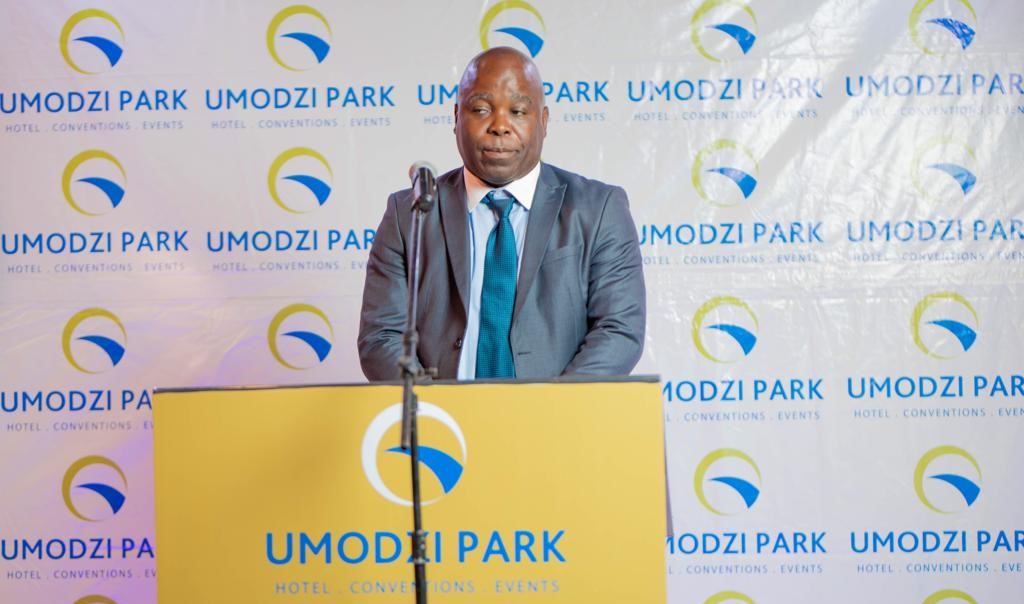‘Act should be consistent with international laws’
Government, through the Law Commission, has embarked on the review of the 1989 Refugees Act. Civil Society Organisations (CSOs) and the public have also been given an opportunity to contribute to the policy and law reform affecting refugees, asylum-seekers and the general public. The CSOs led by Youth And Society (YAS) have since produced a policy paper outlining their contributions to the reforms. Our reporter PRECIOUS KUMBANI engages YAS executive director CHARLES KAJOLOWEKA on this and related matters. Excerpts.

Why has it become necessary to review the Act?
Reviewing the Act will provide and guarantee the basic rights and human needs that refugees and asylum-seekers need in the country. While the Act approximated to the standards found under the main international instruments on refugee law, it does not proceed to highlight basic refugee rights as is the case with the 1951 UN Convention. The country was at the time (1989) under a one-party State and its Constitution did not have a Bill of Rights. As such, it was not possible for a State, which denied its citizens enforceable rights, to guarantee the same to refugees. Besides, Malawi entered several reservations to the 1951 UN Convention; hence, it was unlikely that it would guarantee the same in its own Act.
Could you give details on issues outlined in the policy paper?
YAS and civil society counterparts recommend that government should withdraw its reservation to the 1951 Convention and the 1969 Organisation of African Unity (OAU) Convention that affects the right to work and the freedom of movement of refugees and asylum-seekers. It should reform its Refugee Act of 1989 and ensure that its provisions are consistent with the International Refugee Law on refugees’ protection. It should amend its recampment policy to ensure freedom of movement for refugees and asylum-seekers. We want government to ensure the asylum decision-making model employed is fair and efficient and includes minimal procedural guarantees that assess the well-founded fear of the individual applicant in the country of origin. It should provide legal and procedural safeguards for asylum-seekers during Refugee Status Determination procedures, including access to legal representation and interpreters, and introduce child and gender-sensitive asylum procedures. The Act needs to be clear on immigration issues, refugee status and the social position of children born in refugee camps.
What’s the major concern about the welfare of refugees in the country?
This is a human rights issue. And suffice to say, while camps may be seen as providing better control over the presence and movement of refugees and as a way of easing the potential for tension between them and local communities living in camps can engender dependency and weaken the ability of refugees to manage their own lives, which perpetuates the trauma of displacement and creates barriers to solutions. Over the past decades, local integration has been accepted as a durable solution everywhere except on the political agenda. Part of the reluctance of developing States to accept refugees’ local integration as a formal solution is their conviction that recognising even long-term refugees as citizens would allow them to make new claims on limited State resources, potentially leading to new conflicts with existing citizen groups. However, these fears remain unfounded.
How about concerns on national sovereignty?
The movement of people, whether refugees or ‘migrants’, between States, takes place in a context in which sovereignty remains important. Specifically, that aspect of sovereign competence entitles the State to exercise prima facie exclusive jurisdiction over its territory decide, who among non-citizens allowed to enter and remain, refused admission and required or compelled to leave. Like every sovereign power, this competence must be exercised within and according to law. These are real risks in rethinking protection for refugees and asylum-seekers in the country. Yet acknowledging these risks does not mean that we should stop considering how freedom of movement can help provide durable solutions for the displaced. What it does suggest is that we need to not only rethink solutions, but also rethink protection, to move beyond humanitarian space.
After the policy paper, what do you expect?
We conducted an in-depth analysis of the legal and policy frameworks governing refugees and asylum-seekers in Malawi. Identified opportunities, gaps, and potential solutions to enhance the policy and legal frameworks concerning refugees and asylum-seekers. We documented regional and international best practices/models, along with legal and policy frameworks, that contribute to advancing the welfare and rights of refugees and asylum-seekers. Offered practical and strategic reform recommendations and we expect government to consider them in enhancing the welfare of refugees and asylum-seekers.





